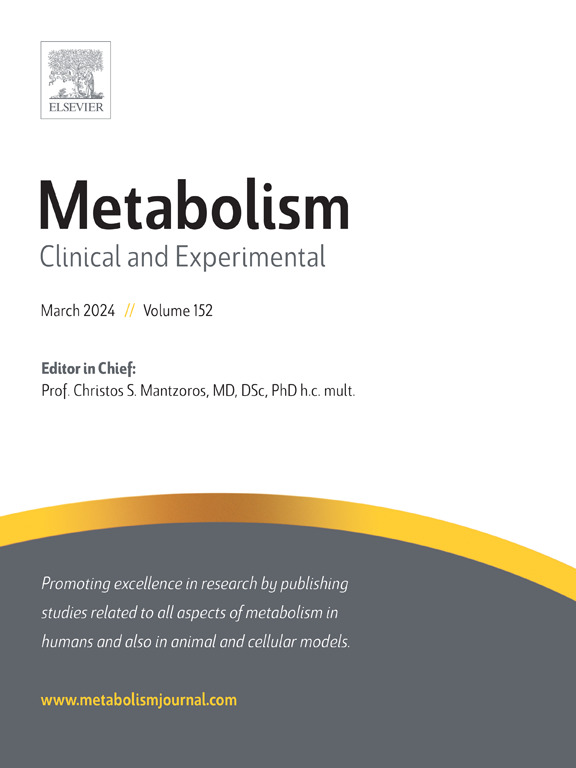饥饿与感染:疾病引起的厌食在急性感染期间的代谢适应中的作用。
IF 10.8
1区 医学
Q1 ENDOCRINOLOGY & METABOLISM
引用次数: 0
摘要
病态相关性厌食,即感染期间出现的食欲下降,是急性感染的一种广泛存在和公认的症状,但人们对其在恢复过程中的功能性作用却知之甚少。厌食疾病行为可被理解为一种进化策略,旨在提高对病原体介导的疾病的耐受性。在这篇综述中,我们将探讨疾病相关厌食症的机制和潜在代谢益处的证据。能量摄入会影响免疫反应、炎症和组织应激的控制以及病原体的适应性。包括激素敏感脂肪酶、过氧化物酶体增殖激活受体-α(PPAR-α)和酮体在内的空腹介质可通过多种途径促进感染恢复,包括抑制炎症、适应脂质利用途径和抵抗病原体诱导的细胞应激。然而,热量限制的效果和益处因感染和宿主的新陈代谢状况不同而存在很大差异,这对不同感染期间的临床喂养建议产生了影响。本文章由计算机程序翻译,如有差异,请以英文原文为准。
Starvation and infection: The role of sickness-associated anorexia in metabolic adaptation during acute infection
Sickness-associated anorexia, the reduction in appetite seen during infection, is a widely conserved and well-recognized symptom of acute infection, yet there is very little understanding of its functional role in recovery. Anorexic sickness behaviours can be understood as an evolutionary strategy to increase tolerance to pathogen-mediated illness. In this review we explore the evidence for mechanisms and potential metabolic benefits of sickness-associated anorexia. Energy intake can impact on the immune response, control of inflammation and tissue stress, and on pathogen fitness. Fasting mediators including hormone-sensitive lipase, peroxisome proliferator-activated receptor-alpha (PPAR-α) and ketone bodies are potential facilitators of infection recovery through multiple pathways including suppression of inflammation, adaptation to lipid utilising pathways, and resistance to pathogen-induced cellular stress. However, the effect and benefit of calorie restriction is highly heterogeneous depending on both the infection and the metabolic status of the host, which has implications regarding clinical recommendations for feeding during different infections.
求助全文
通过发布文献求助,成功后即可免费获取论文全文。
去求助
来源期刊

Metabolism: clinical and experimental
医学-内分泌学与代谢
CiteScore
18.90
自引率
3.10%
发文量
310
审稿时长
16 days
期刊介绍:
Metabolism upholds research excellence by disseminating high-quality original research, reviews, editorials, and commentaries covering all facets of human metabolism.
Consideration for publication in Metabolism extends to studies in humans, animal, and cellular models, with a particular emphasis on work demonstrating strong translational potential.
The journal addresses a range of topics, including:
- Energy Expenditure and Obesity
- Metabolic Syndrome, Prediabetes, and Diabetes
- Nutrition, Exercise, and the Environment
- Genetics and Genomics, Proteomics, and Metabolomics
- Carbohydrate, Lipid, and Protein Metabolism
- Endocrinology and Hypertension
- Mineral and Bone Metabolism
- Cardiovascular Diseases and Malignancies
- Inflammation in metabolism and immunometabolism
 求助内容:
求助内容: 应助结果提醒方式:
应助结果提醒方式:


